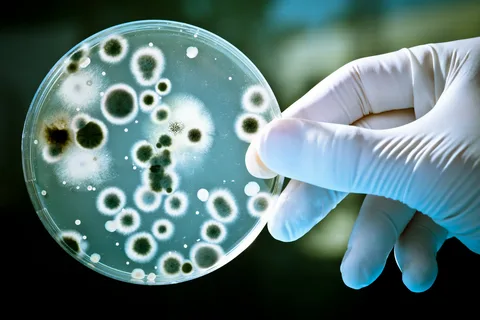Table of Contents
Mould is stubborn and pervasive as it can damage not just your property but also your health. Although it is a common problem faced by renters and homeowners alike, it requires professional remediation which is often supplied using antimicrobial agents.
ICE Cleaning is one of the UK’s leading specialist cleaning companies in mould remediation services. Its cleaners are experts in the field, working closely with councils nationwide to restore the quality of housing and keep mould out of our homes.
Read on to learn more about antimicrobial agents and understand why they are vital in mould removal efforts.
Understanding the mould problem
Mould thrives in damp, humid conditions and feeds off dead organic matter like dust or old wood. When mould produces spores, they find their way into our homes and can cause serious health issues.
Health problems caused by mould include respiratory issues, allergic reactions, and even neurological symptoms in severe cases. Tackling a mould problem head-on is about maintaining good indoor air quality.
Professional remediation services are often needed to get rid of stubborn infestations effectively. These specialists use antimicrobial agents – powerful substances that kill microorganisms or stop their growth – which are an essential tool against it.
Mould removal is not always straightforward because it grows deep within materials and every strain has its own preferred habitat and resistance level to different treatments.
Antimicrobial agents: a vital tool
Antimicrobial agents are potent substances that are vital in the fight against mould growth and spread. They are chemical or natural compounds that kill or slow down the growth of microorganisms such as bacteria, viruses, and fungi.
Mould remediation companies use antimicrobials because they help control mould at its source. For effective mould remediation, professionals need to apply specific types of antimicrobials based on the type of mould present.
Each strain of mould responds differently to various treatments. Identifying the right agent for your situation can make all the difference between successful eradication and recurring issues.
Antimicrobial agents are designed to tackle mould at its root. They penetrate deep into surfaces, eliminating spores and preventing regrowth.
Types of antimicrobial agents
Different kinds of antimicrobial agents are available to combat mould, including chemical-based solutions, natural and eco-friendly options, biocides, and fungicides.
The most common type of mould-fighting weapon is chemical-based antimicrobials. These substances work by destroying or inhibiting the growth of mould spores.
Biocides and fungicides play a crucial role in fighting off mould infestations; however, they function differently. Biocides aim to kill all living organisms while fungicides specifically target fungi without affecting other forms of life.
For greener solutions, there are natural alternatives available too. For example, a recent study found that moringa, curry leaf, and coconut oil extracts possess strong antifungal properties that help in combating mould effectively.
For permanent mould solutions, ICE Cleaning’s mould removal solutions provide you with high-quality results and a lifetime guarantee*. If you are struggling with mould, you can rely on its experts to attend to your property and eradicate all mould on-site.
To learn more about its specialist cleaning services, you can visit their website or give them a call today.
*subject to advisories









